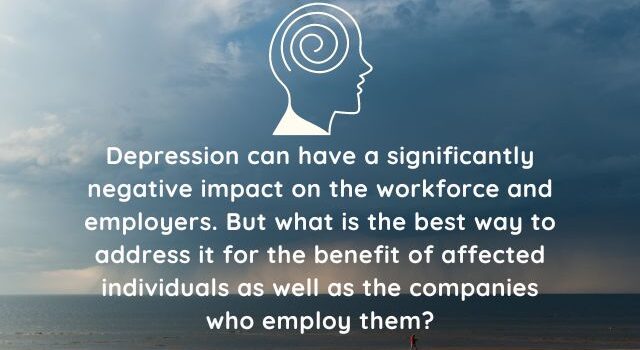Depression is a serious issue that can affect any employee, regardless of their job title or industry. In the workplace, depression can lead to reduced productivity, increased absenteeism, and even suicide. It’s important for employers and employees alike to be aware of the signs of depression and how best to address it in the work environment.
This blog post will provide employers with information on how best to address depression in the workplace, as well as provide tips on how they can help protect their employees from potential mental health issues.
Recognising depression in the workplace
Depression can be difficult to recognize because symptoms vary from person to person. However, the most common signs of depression in the workplace include:
- Low energy levels
- Lack of motivation
- Difficulty concentrating
- Lack of interest in social activities
- Lack of enthusiasm for work tasks
- Feelings of hopelessness or helplessness
- Changes in sleeping pattern or appetite
- Irritability or mood swings
If you recognise any of these symptoms in yourself or a colleague it is important to seek help from a healthcare professional as soon as possible. It is important for employers to be aware of these symptoms so that they can identify cases of depression early and intervene if necessary.

Stigma in the workplace
While it is important to get help for mental health issues, sometimes it is difficult to disclose the fact that you are struggling and seek support from your employer due to the stigma that surrounds mental health, including depression.
This stigma takes many forms including fear that talking about mental health issues will damage their reputation or career prospects. It’s important to address this stigma by creating an open dialogue amongst employers and employees about mental health and its effects on productivity. Employers should encourage their staff to talk openly about how they are feeling and provide support if needed. They should also ensure that human resource policies are clear on how employees can access help if they need it.


